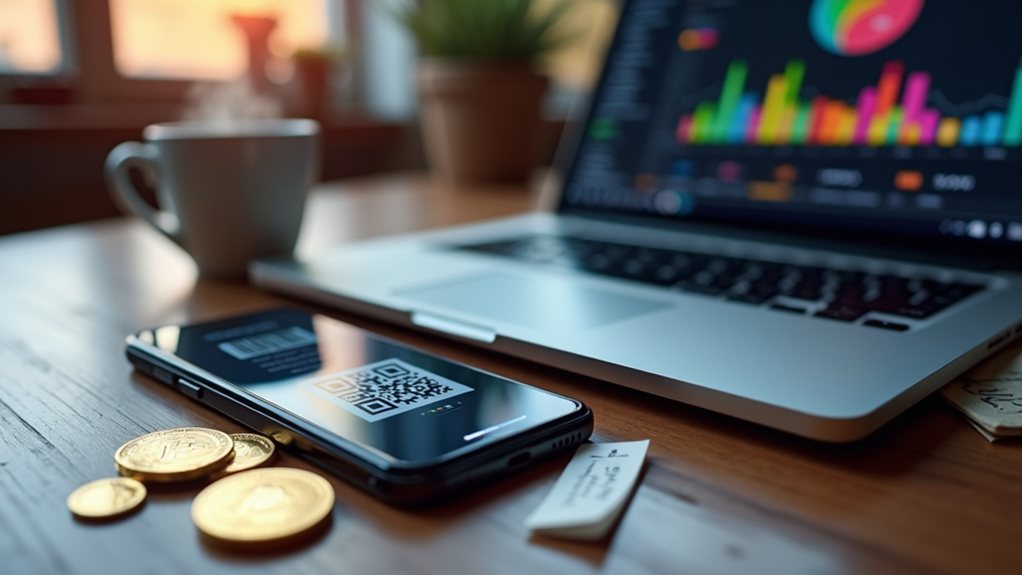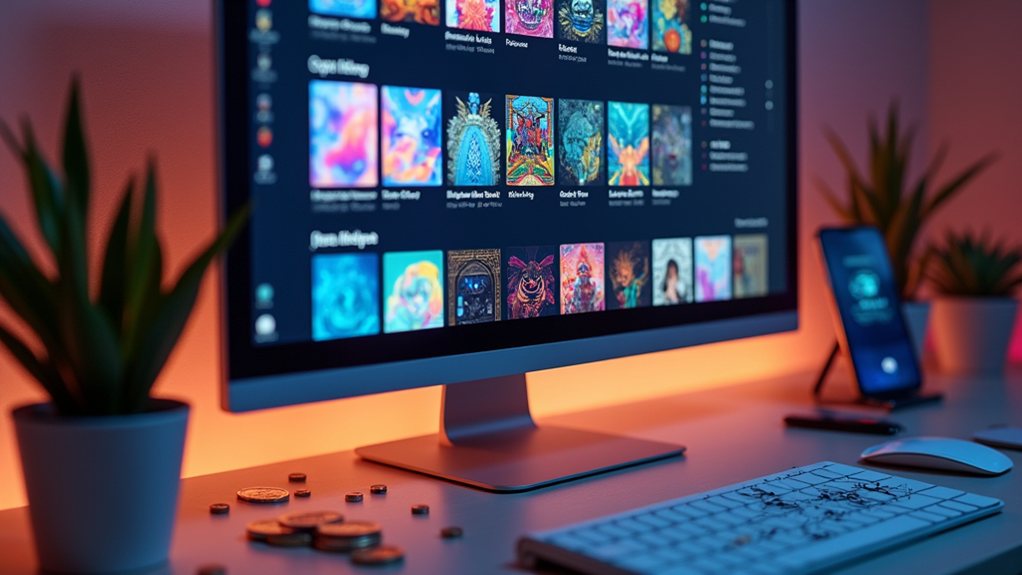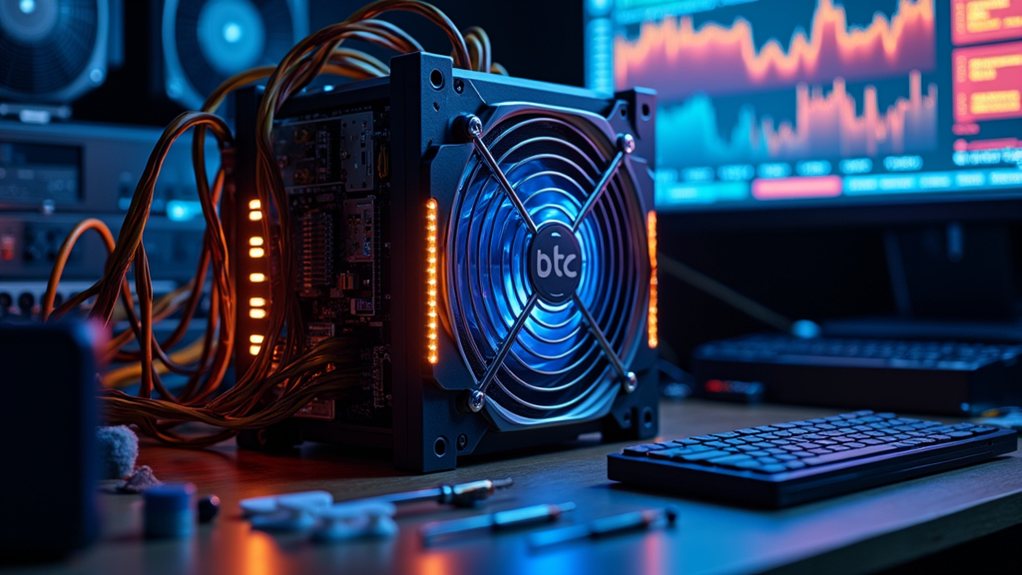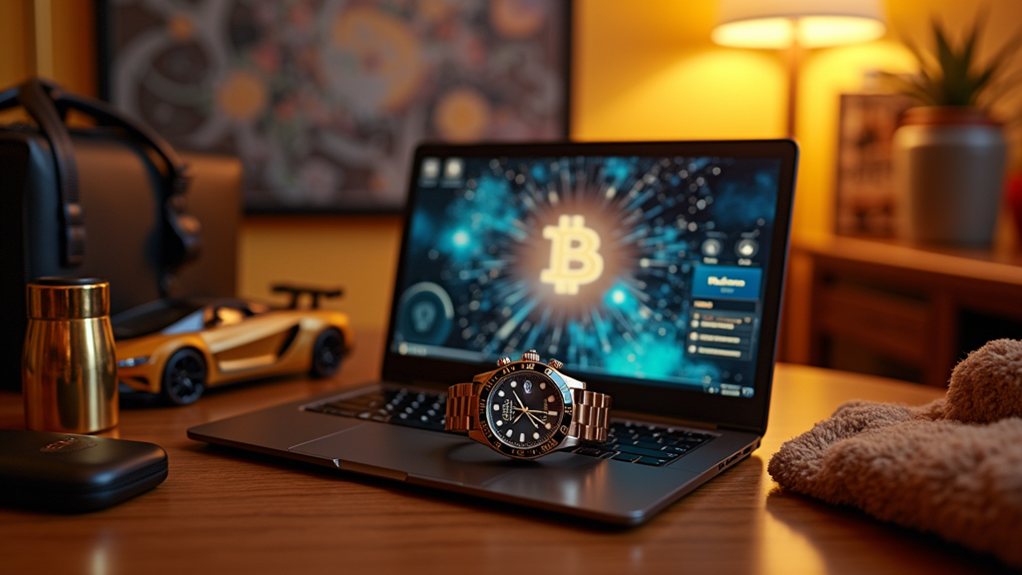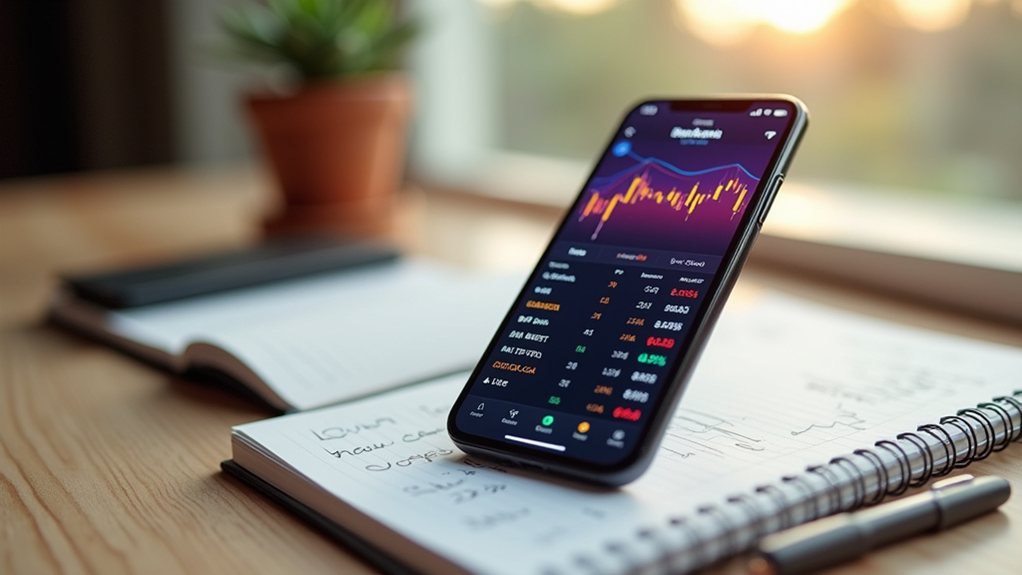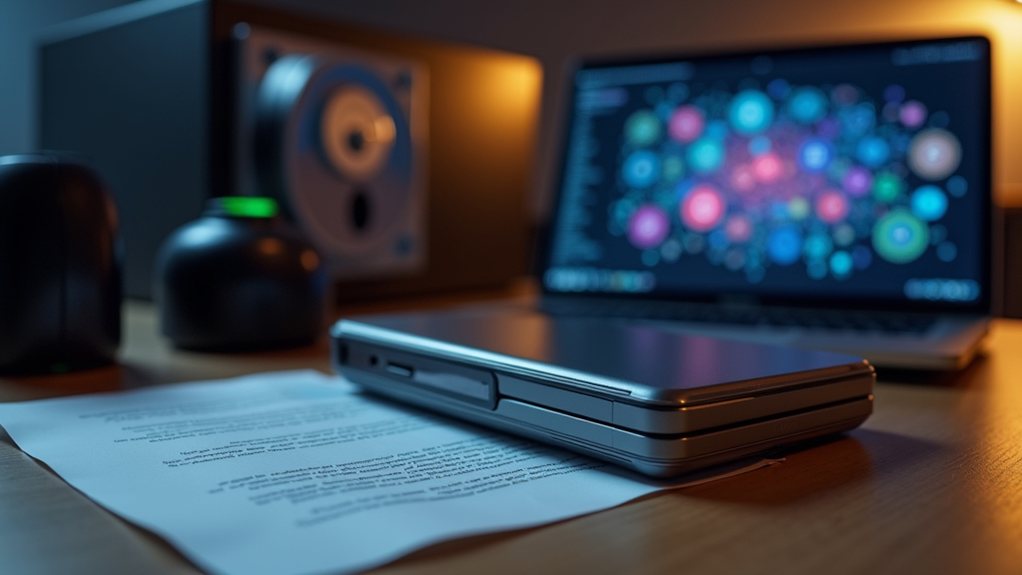Setting up a Bitcoin wallet takes seven simple steps. First, choose your wallet type—hot for convenience, cold for security. Download from official sources only. Create a new wallet and secure your recovery phrase—write it down, don't screenshot it. Set a strong password and enable two-factor authentication. Update regularly and test with small amounts. Never use public Wi-Fi for transactions. The world of digital currency awaits.
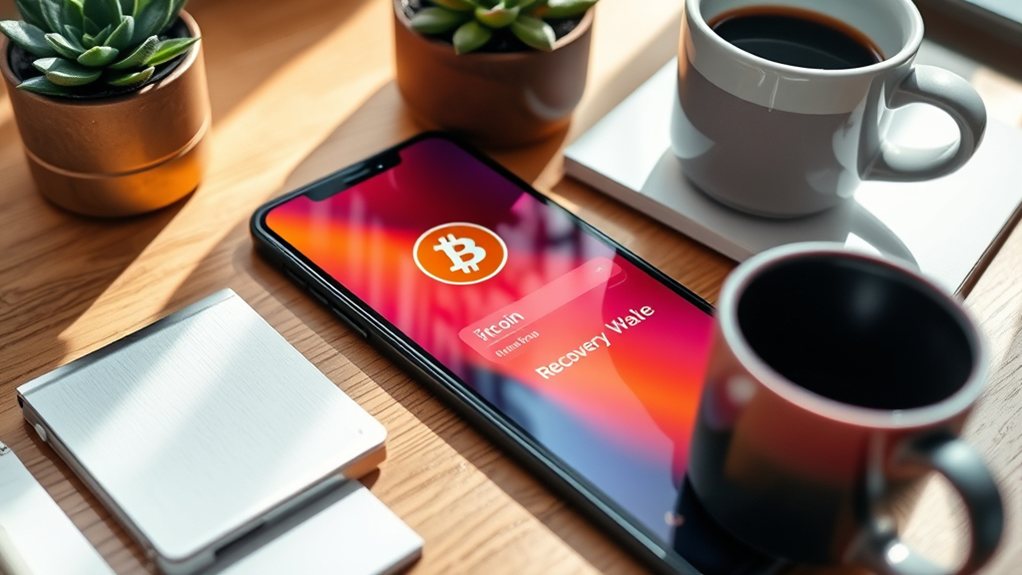
While cryptocurrencies continue to revolutionize the financial world, choosing the right Bitcoin wallet remains an essential decision for both newcomers and veterans alike. The wallet landscape isn't exactly simple. There are hot wallets connected to the internet for those who need frequent access, and cold wallets for the paranoid types who prefer offline storage. Makes sense, really. Keep your everyday spending money accessible and your life savings locked away.
The digital finance revolution demands smart wallet choices. Your Bitcoin's security depends on it.
Software wallets run on your computer or phone. Simple to set up, convenient to use. Hardware wallets are physical devices that look like USB drives. More secure, less convenient. Paper wallets? Just printed keys on actual paper. Old school, but effective. No hacker's breaking into a piece of paper. Unless they have scissors.
Getting started with a software wallet is straightforward. Download from the official website—not some random link, obviously. Create a new wallet or import an existing one if you're switching platforms. The wallet generates a recovery phrase. Write it down. No, seriously, write it down somewhere physical. People lose fortunes forgetting these things. Set a strong password, enable two-factor authentication, and you're basically good to go.
Hardware wallets require more commitment. Buy from authorized retailers only. Counterfeits exist, and they're not selling fake Gucci—they're after your Bitcoin. Follow the manufacturer's instructions precisely, generate and store your recovery seed, and keep the firmware updated. When you need to transact, connect to your computer or phone. Less convenient than software wallets, but that's the price of security.
Regardless of wallet type, certain security principles apply universally. Strong passwords. Two-factor authentication. Keep everything updated. Store recovery phrases in multiple secure locations. Some people use multi-signature wallets. Transactions need multiple approvals. Overkill for small amounts, sensible for larger holdings.
Modern wallets offer useful features beyond just storing keys. They track transaction history, generate QR codes for easier transfers, create multiple addresses for privacy, and often integrate with exchanges for trading. Many wallets like Exodus now support thousands of digital assets, including NFTs and various cryptocurrencies. Paper wallets are actually completely immune to digital attacks but require careful physical security measures. Many support multiple cryptocurrencies too. Convenient.
Managing wallets effectively means regular backups, testing with small amounts first, avoiding public Wi-Fi for transactions, and monitoring for suspicious activity. Some users maintain multiple wallets—one for daily use, another for savings, maybe a third for specific projects. Logical approach. For maximum protection, consider spreading your assets across different storage methods to minimize potential losses.
The wallet you choose ultimately depends on your needs. Frequent trader? Hot wallet makes sense. Long-term holder? Cold storage is wiser. The cryptocurrency universe isn't forgiving of mistakes. Choose carefully, follow best practices, and your digital assets stand a better chance of remaining yours. No wallet is perfect, but some are definitely better than others.
Frequently Asked Questions
Can I Recover My Bitcoin if I Lose My Wallet Password?
Recovery of a lost Bitcoin wallet password is possible, but not guaranteed. Options exist. Specialized recovery services might help. Brute force attacks work sometimes. If there's a mnemonic phrase, chances improve dramatically.
Without these? Tough luck. The blockchain doesn't care about forgetfulness.
Some wallets offer built-in recovery features, but they're not magic. Prevention beats recovery every time.
Two-factor authentication and password managers exist for a reason.
Are Bitcoin Wallets Traceable by Government Agencies?
Bitcoin wallets are partially traceable by government agencies.
Blockchain transactions are public—everyone sees them. Agencies use sophisticated analysis tools to follow the money trail. When you use exchanges with KYC requirements? Yeah, they'll know it's you.
But perfect tracking isn't guaranteed. Mixing services, privacy coins, and cold storage wallets create roadblocks.
Some users employ multiple wallets to obscure their activities.
No system is foolproof. Not even Bitcoin.
How Do Taxes Work for Bitcoin Stored in Wallets?
Bitcoin in wallets isn't taxable by itself. Just sitting there? No tax.
Moving between your own wallets? Still no tax.
But sell it, trade it, or buy stuff with it—boom, taxable event. The IRS views crypto as property, not currency.
Every sale gets reported on Form 8949. HODLers benefit from lower long-term capital gains rates after a year.
Network fees? Those might be taxable too. Record-keeping is essential.
Can Hackers Steal Bitcoin From an Offline Wallet?
Hackers can't remotely steal Bitcoin from properly maintained offline wallets. That's the whole point of cold storage.
However, physical theft remains a real concern. Someone could steal your hardware wallet or find your paper backup.
Side-channel attacks exist too. And never underestimate human error—people accidentally expose their recovery phrases all the time.
Cold storage works against online threats, but nothing's 100% secure. Physical security matters just as much.
What Happens to My Bitcoin Wallet After I Die?
Bitcoin doesn't know or care when you die, that's the brutal reality.
Without proper planning, your crypto assets vanish into digital oblivion. Forever.
Unless someone has your private keys, seed phrases, or wallet access, those coins are effectively cremated with you.
Smart crypto owners document everything, set up inheritance protocols, name digital executors.
Some exchanges offer beneficiary features.
Without preparation? Your bitcoin becomes another crypto ghost story.

